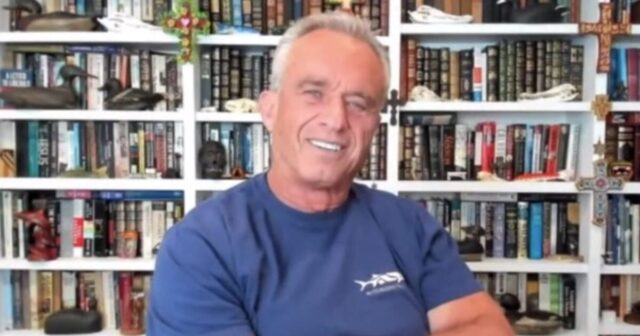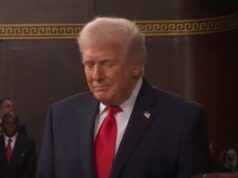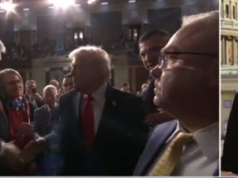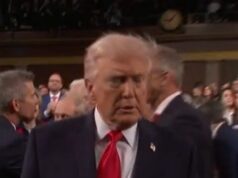Reposted by The Western Journal with permission.
Democratic presidential contender Robert F. Kennedy Jr. has revealed that the Biden administration has refused to provide him with Secret Service protection.
Kennedy’s campaign sought this protection months ago, supported by “a 67-page report from the world’s leading protection firm, detailing unique and well established security and safety risks aside from commonplace death threats,” he said.
His request was ignored for three months until Homeland Security Secretary Alejandro Mayorkas rejected it in one sentence: “I have determined that Secret Service protection for Robert F Kennedy Jr is not warranted at this time.”
Nonsense! It’s my view that Kennedy should have that protection, and have it now. Stick with me till the end of this article, and I’ll explain how we are going to make this work.
When I was named national security advisor by President Donald Trump, I learned firsthand what it is like to be a protectee of the Secret Service.
About 10 days before Inauguration Day on Jan. 20, 2017, a team of Secret Service agents came to my home to interview me and my family. Protection for me began during the inauguration, and agents stayed with me until I became the first Trump official taken down by the deep state. When I went to the gym, they went to the gym. When I went down to Mar-a-Lago and swam in the ocean, an agent swam with me.
These men and women are the cream of the crop — respectful, dedicated, professional. Just the best. I do not want anyone thinking that anyone at the Secret Service made the decision not to protect RFK Jr. They don’t make that decision; they implement decisions made by others.
Every week I seem to reach a new level of outrage at the duplicity of President Joe Biden and the moral pygmies with whom he has staffed his administration, but this action shocked me to the core.
To begin with, let’s put aside any thought that this decision was made by Mayorkas. Whether or not Biden actually made the decision is irrelevant — the buck stops on his desk. So here we are dealing with a Democratic candidate for president who was denied protection by the Democratic president he is challenging.
And Kennedy is not just any candidate for president. He is the son of a man who was assassinated while running for president. He is the nephew of a man who was assassinated while serving as president. His father’s assassination led to the enactment of the very law that authorizes Secret Service protection for presidential candidates so that it would never happen again.
Let’s take a look at that law.
The Secret Service was previously under the authority of the Department of the Treasury, but was transferred to the Department of Homeland Security in 2003. Federal law (18 U.S. Code § 3056) authorizes Secret Service protection for what are termed “major presidential and vice presidential candidates.” The statute gives little guidance as to which candidates are to be considered “major.”
The decision is made by the secretary of Homeland Security — Majorkas — “after consultation with an advisory committee consisting of the Speaker of the House of Representatives [Kevin McCarthy], the minority leader of the House of Representatives [Hakeem Jeffries], the majority and minority leaders of the Senate [Chuck Schumer and Mitch McConnell], and one additional member selected by the other members of the committee.”
The statute leaves vast discretion to Mayorkas. On the Secret Service website, there is a non-exhaustive list of criteria to guide the secretary’s decision, which includes:
- Whether the candidate is actively campaigning on a national basis;
- A threat assessment conducted by the Secret Service of general or specific threats directed at the candidate;
- Whether the candidate has polled at 15 percent or more for 30 consecutive days; and
- Whether the candidate is the formal or de facto nominee of a major party.
Mayorkas did not explain the basis for his decision. He did not reveal whether he bothered to consult with the advisory committee as required before summarily denying Kennedy’s request. The media ought to be asking the congressional leadership whether they were consulted and what they recommended.
The Secret Service website also states that such protection “should only be granted within one year prior to the general election” and earlier protection “should only be granted in extraordinary, case by case circumstances in consultation with the committee, based on threat assessment and other factors.”
read the Rest at The Western Journal.









